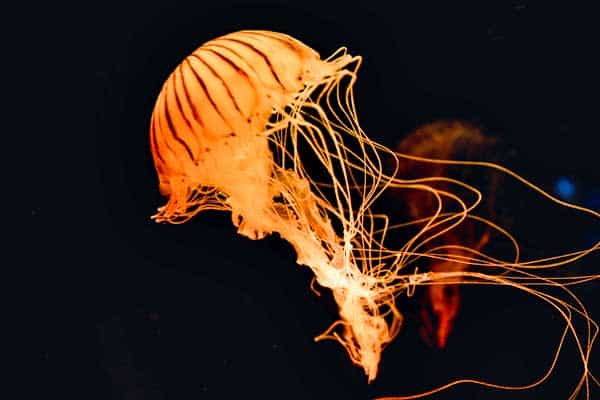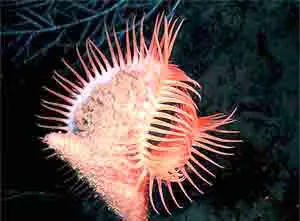We rarely see wild animals sleep so most people don’t know where they sleep. Let’s find out. We will start with a very short answer to the question.
Where Do Animals Sleep? Some animals prefer to sleep in trees away from predators. Larger animals with few natural enemies will sleep out in the open. Sea creatures can sleep for short periods while swimming or floating with the current.
But there is much more to say about how animals sleep in the wild.
Let’s take a closer look.
Table of Contents
We will start by looking at where exactly animals go to sleep. Both the large mammals, the small creeps, and sea creatures.
They all have their own favorite places to go to when resting.
The Most Common Places For Wild Animals To Sleep
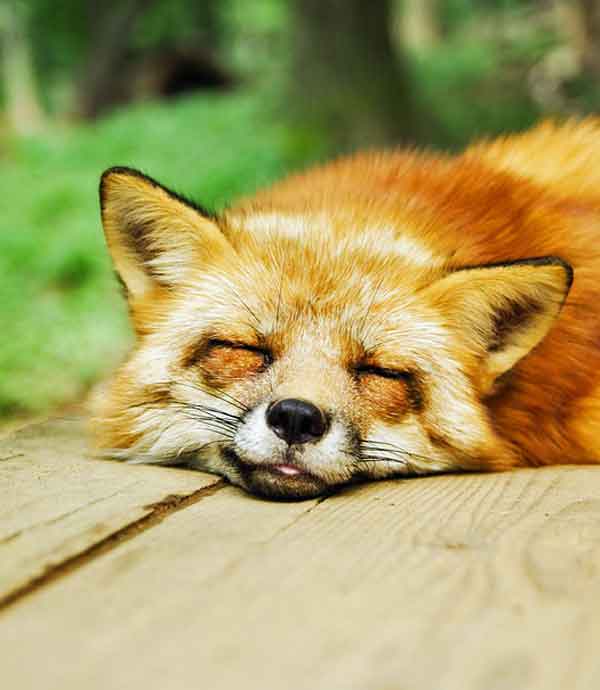
Most animals need to get some sleep once in a while. The brain needs to relax and go to a sleeping state once in a while.
Let’s take a look at WHERE they do it
1) Sleeping In Trees
Some animals prefer to sleep up in the trees.
Trees are great because you are at safe distances from predators on the ground. Most predators will not climb trees. So unless you are on the recipe as dinner for Komodos (hint: they can climb!) you are probably safe in the trees.
Let’s take a closer look at some animals that sleep in trees.
10 animals that sleep in trees:
- Leopards
- Pandas
- Squirrels
- Monkeys
- Koalas
- Sloths
- Raccoons
- Owls
- Panthers
- Bats
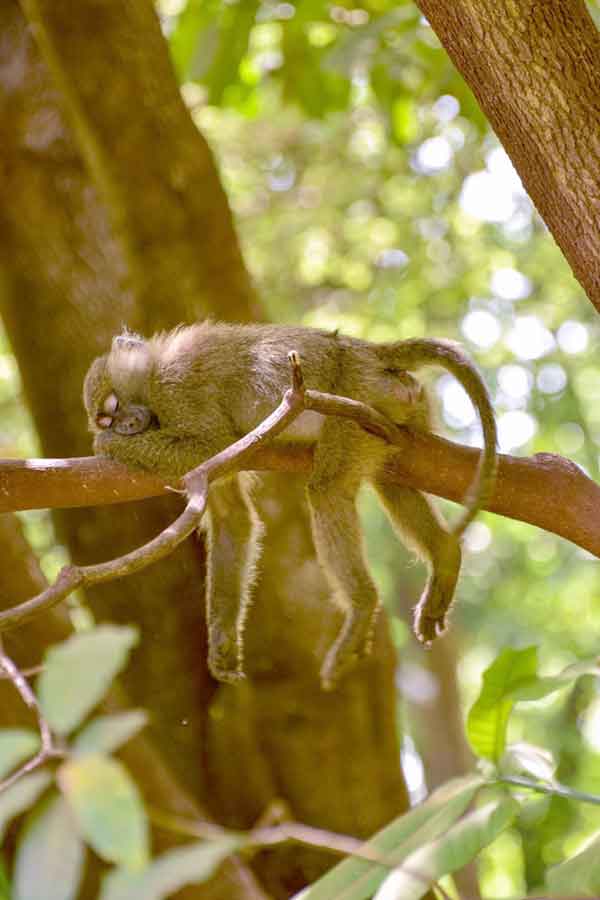
2) Out In The Open
Large predators without many natural enemies can be found to sleep anywhere they please.
Lions and Tigers are good examples of this. You will find them sleeping under a tree, in long grass, besides a river, etc.
They often sleep during the day because they are nocturnal and will hunt at night. So this means they have to find somewhere out of the sun because the sun gets really hot on the African savannah.
So they will find bushes or trees in order to get shade.
You will also find snakes and other reptiles sleeping directly in the sun during the day. They like to find a good warm spot and get as warm as possible.
These are 10 animals that sleep out in the open:
- Tigers
- Lions
- Deers
- Cats
- Snakes
- Komodos
- Ducks
- Monkeys
- Walrusses
- Polar Bears
3) In Caves, Burrows, And Dens
Bears will go into hibernation for months at the time. They will typically do so in dens and caves.
Here you will also find animals like bats, birds, and smaller mammals.
You will also find rabbits hiding away underground when they are sleeping. They dig tunnels called burrows in order to stay safe and away from predators and noise. Wombats share the same behavior and they can actually get pretty far down into the ground.
The Wombats are really great at digging and they love to dig tunnels in order to get away from the ground.
These are 10 animals that sleep underground
- Foxes
- Wombats
- Rabbits
- Bears
- Bats
- Tigers
- Cats
- Hyenas
- Rodents
- Turtles
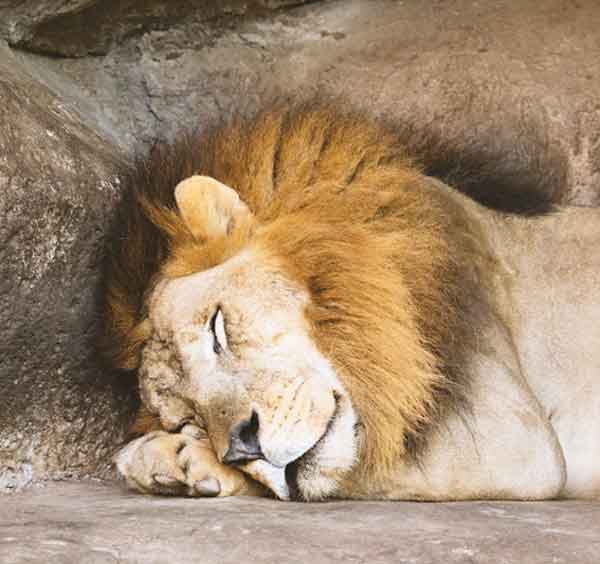
Where Do Ocean Animals Sleep?
Life in the ocean is very different from life on the ground. The animals who live in the ocean are called aquatic animals.
Let’s take a closer look at how these sea creatures manage to get sleep underwater.
Sharks sleep for short periods
Scientists believe that sharks will sleep while swimming in a strong current.
The challenge for the shark is that it has to keep a constant flow of water through its gills. The water will bring oxygen to the shark and it cannot live without oxygen.
Whenever the animal feels like it’s just drifting away it might go into the sleeping state. This is not fully documented and there is still a lot of speculation around the sleeping habits of sea creatures like sharks.
Some sea creatures will sleep on the beach
This is true for the Walruses and Seals.
They can sleep in the water but when they need to sleep for longer periods they will roll up on the shore.
But the sleeping habits of the walruses are really weird and very different from the sleep patterns of humans.
They have been observed to be awake for more than three full days and night and they can also sleep for almost a day when they are on the beach.
Another cool fact about walruses is that they can inflate parts of their bodies (with air) in order to keep close to the surface. This does this while they sleep in order to keep afloat.
Dolphins sleep while they swim
Dolphins have a weird way of sleeping. They can do so in one of two ways.
They can either get close to the surface and get into it deeper sleep or they can go into a lighter sleeping state while swimming.
The dolphin will also sleep with only one part of its brain as we will look into in the next section.

Some oceanic animals are sleeping and awake (simultaneously)
Some of the larger sea creatures like whales and dolphins are what we call voluntary breathers. This means they have to stay awake in order to breathe.
On the other hand, they don’t have to breathe as often as you and I.
In order to do so, they can only sleep with one part of the brain. This is called unihemispheric sleep, and it makes sure that the animal is protected as well because one part of the brain is alert to dangers while making sure the animal breathes.
In order to make this work, Dolphins will only close one eye when they are sleeping. The other eye will stay open to be able to spot movement and keep the animal alert to dangers around it.
Sometimes the Dolphin will rest one part of the brain and after a while, it will change to rest the other part of the brain. The way to know which part of the brain is asleep is to look at its eyes. As mentioned before, it will only close one eye at a time so you can easily see which eye (and part of the brain) that sleeps.
Some whales will only sleep for around 15 minutes at a time so they don’t drift too far away. They do so vertically.
Otters hold hands to avoid floating (far) away
The funniest and cutest behavior we find with Sea Otters.
Otters will stay at the surface in pairs of two animals. They will hold hands while laying on their backs in order to not drift apart or too far away.
They have also been observed to grab hold off a piece of wood to stay put.
They are very intelligent creatures and they can actually also use rocks as tools. We have also observed Otter moms wrapping their little ones in seaweed so they don’t float away.
This is probably because the little ones are too small to be able to grab someone with their hands.
Where Do Insects Sleep?
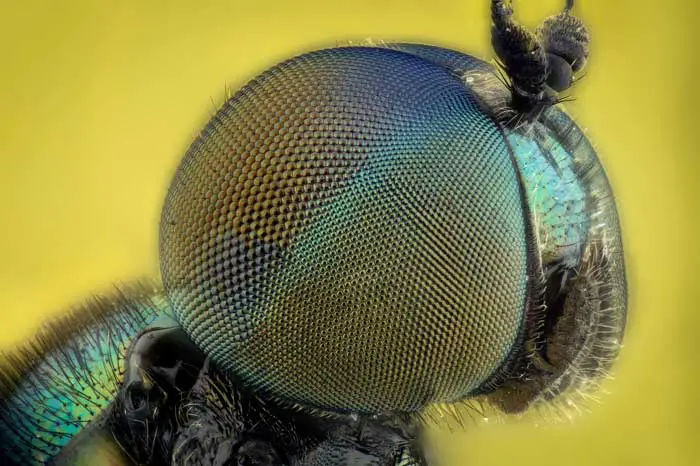
So how about our little insect friends? Where do bugs sleep?
Let’s take a closer look.
Some insects will rest during the day while others are nocturnal. We don’t know much about brain activity among bugs or even if they are capable of sleeping. But they enter a state called “torpor”.
Torpor is a sleep-like state where the animal is mentally inactive and does not react to any stimuli in its surroundings. The animal will typically lower its body temperature during this torpor state.
They can do this in many places like in trees, on flowers, in bushes, etc.
Insects like butterflies will often sleep in large groups. This is probably to stay safe from predators so they can wake each other up.
Flies have also been observed to sleep. They can do so in the grass or on tree leaves.
Animals That Don’t Sleep At Night (Nocturnal)
We find a lot of animals from exotic areas that don’t sleep during the night. They will sleep during the day and be awake at night.
There are several reasons for this and we have written another article entirely about this. Go here to read all about why some animals are nocturnal.
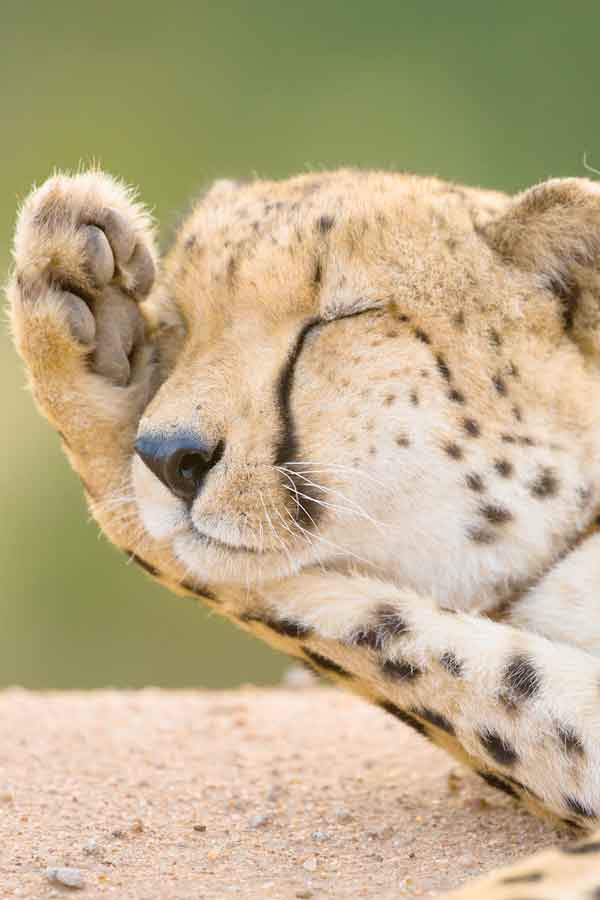
Which Animals Do Not Sleep?
Some animals don’t sleep at all.
These animals include Giraffes, Horses, and some frogs. But there are many more animals who can get away with staying awake all the time. Or at least they can be alert and not enter deep sleep.
We have written a separate article about this. Head over here to read more about which animals do not sleep at all.



